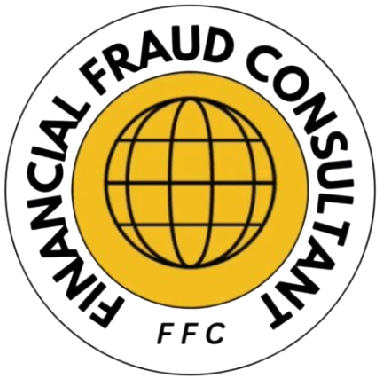
In an increasingly interconnected world, the convenience of online transactions and interactions comes with a darker side: the proliferation of online fraud. From deceptive phishing emails to sophisticated investment scams, cybercriminals are constantly devising new ways to exploit the digital landscape for illicit gain. While the anonymity of the internet might embolden some, the consequences of getting caught engaging in online fraud are far from trivial. This blog delves into the serious penalties you could face, highlighting that “online” doesn’t equate to “without consequence.”
Online fraud, at its core, involves using internet services or software with the intention to defraud or deceive, typically for financial gain. This broad definition encompasses a wide array of criminal activities, each carrying its own set of potential penalties. Let’s break down what happens when the digital mask slips and the perpetrators are brought to justice.
The Legal Hammer: Arrest, Charges, and the Specter of Incarceration
When you engage in online fraud, you’re not operating in a consequence-free vacuum. Law enforcement agencies worldwide are increasingly adept at tracking and prosecuting cybercriminals. The journey from a digital crime to legal repercussions often begins with an investigation triggered by victim reports, financial institution monitoring, or even proactive cybercrime units.
If the investigation yields sufficient evidence, an arrest can follow. Depending on the scale and nature of the alleged fraud, you could face a range of charges. These can vary from state to federal levels and might include wire fraud, computer fraud, identity theft, and more. The seriousness of these charges often dictates the potential penalties, with felonies carrying the risk of significant jail or prison time.
As the title suggests, jail time is a very real possibility for those convicted of online fraud. For substantial financial losses, large numbers of victims, or involvement in organized cybercrime, sentences can range from several years to potentially decades in federal prison. The exact duration will depend on factors such as the monetary value of the fraud, the sophistication of the scheme, and any prior criminal record.
The Financial Sting: Hefty Fines and Restitution
Beyond the threat of incarceration, financial penalties are a cornerstone of online fraud sentencing. Fines can be substantial, often levied to punish the offender and to act as a deterrent. These can range from thousands to millions of dollars, particularly in cases involving large-scale operations or corporate fraud. The court will consider the financial gain of the perpetrator and the losses incurred by the victims when determining the fine amount.
Furthermore, those convicted of online fraud are often ordered to pay restitution to their victims. This means you would be legally obligated to repay the individuals or entities who suffered financial losses as a direct result of your fraudulent activities. Restitution can encompass the actual money stolen, as well as any other financial damages incurred. Failure to pay restitution can lead to further legal repercussions.
Read more on What Really Happens When You’re Caught in the Web of Credit Card Fraud
The Lasting Mark: A Criminal Record and Its Long-Term Impact
A conviction for online fraud leaves an indelible mark: a criminal record. This record can have far-reaching consequences that extend well beyond any jail sentence served or fines paid. It can significantly impact your ability to:
- Secure Employment: Many employers conduct background checks, and a fraud conviction can be a major red flag.
- Obtain Housing: Landlords may be hesitant to rent to individuals with a history of financial crimes.
- Access Credit: Your ability to obtain loans, credit cards, or even a mortgage can be severely hampered.
- Travel Internationally: Some countries may restrict entry to individuals with criminal records.
The stigma associated with a fraud conviction can also affect personal relationships and community standing, making reintegration into society a challenging process.
Delving Deeper: Specific Examples and Penalties
To illustrate the severity of online fraud penalties, let’s look at some common types of online fraud and their potential consequences:
- Phishing and Email Scams: Crafting deceptive emails or websites to steal sensitive information. If successful, this can lead to identity theft and financial loss for victims. Penalties can include fines and imprisonment, especially if the scale of the operation is large or if significant harm is caused.
- Online Auction Fraud: Misrepresenting goods sold online or failing to deliver them after receiving payment. Depending on the value of the fraudulent transactions, this can range from misdemeanor charges with fines to felony charges with potential jail time.
- Investment Scams: Using online platforms to promote fraudulent investment opportunities. These schemes can defraud numerous individuals out of significant sums. Penalties for orchestrating such scams can be severe, often involving lengthy prison sentences and substantial financial penalties.
- Credit Card Fraud (Online): Using stolen or fake credit card information for online purchases. This can lead to charges of credit card fraud and potentially identity theft, carrying penalties of fines and imprisonment.
- Ransomware Attacks: Deploying malicious software that blocks access to a computer system until a ransom is paid. This is a serious federal crime with significant penalties, including lengthy prison sentences and hefty fines.
The Global Reach: Cross-Jurisdictional Implications
The internet transcends geographical boundaries, and so too can online fraud. If your fraudulent activities cross state or national lines, you could face federal charges in the United States or prosecution in multiple countries. This can complicate legal proceedings and potentially lead to even harsher penalties. International cooperation among law enforcement agencies is increasing to combat transnational cybercrime.
Beyond the Obvious: Other Potential Repercussions
In addition to the primary penalties of jail time and fines, individuals convicted of online fraud might also face:
- Asset Forfeiture: The government may seize assets that were obtained through or used in the commission of the crime.
- Probation or Supervised Release: After serving a prison sentence, you may be subject to a period of supervision with specific conditions.
- Reputational Damage (Professional): If your online fraud involved your profession or business, the damage to your reputation can be irreparable.
Crypto scam recovery
Recover your hacked crypto wallet with our expert service. We provide thorough investigation, advanced tracking, and secure recovery solutions to restore your digital assets.
Conclusion: The High Cost of Cyber Deception
Engaging in online fraud might seem like a faceless crime with minimal risk, but the reality is starkly different. The penalties explained – jail time, significant fines, a lasting criminal record, and more – underscore the seriousness with which these offenses are treated. The digital realm is not a lawless frontier, and the consequences of crossing the line into online fraud can be life-altering. Understanding these potential repercussions should serve as a powerful deterrent against engaging in such deceptive and illegal activities.
Resource References:
- United States Department of Justice (DOJ): The DOJ website provides extensive information on cybercrime and the penalties associated with federal offenses. (https://www.justice.gov/)
- Federal Bureau of Investigation (FBI) – Cyber Crime: The FBI’s cybercrime division details various types of online fraud and their efforts to combat them. (https://www.fbi.gov/how-we-can-help-you/safety-resources/scams-and-safety)
- National Conference of State Legislatures (NCSL): The NCSL offers resources on state laws related to cybercrime and fraud. (https://www.ncsl.org/)
- The Identity Theft Resource Center (ITRC): While focused on victims, the ITRC also provides insights into the types and consequences of identity theft, often linked to online fraud. (https://www.idtheftcenter.org/)
- Europol – European Cybercrime Centre (EC3): For a European perspective, Europol’s EC3 provides information on cybercrime trends and enforcement. (https://www.europol.europa.eu/crime-areas/cybercrime)
These resources offer a deeper understanding of the legal frameworks and the realities of combating online fraud.




